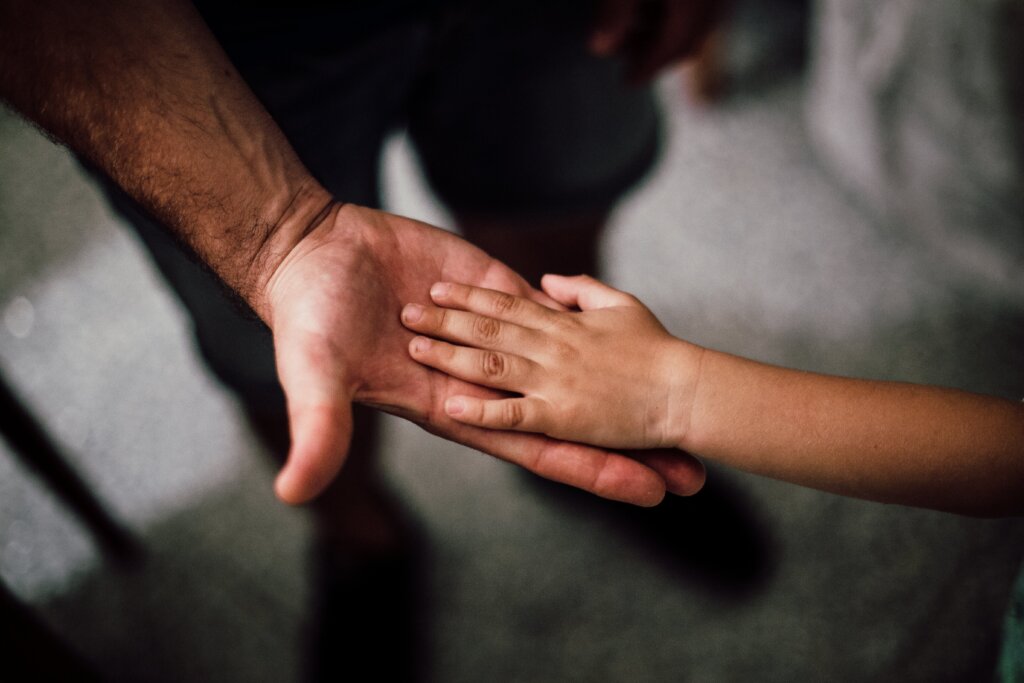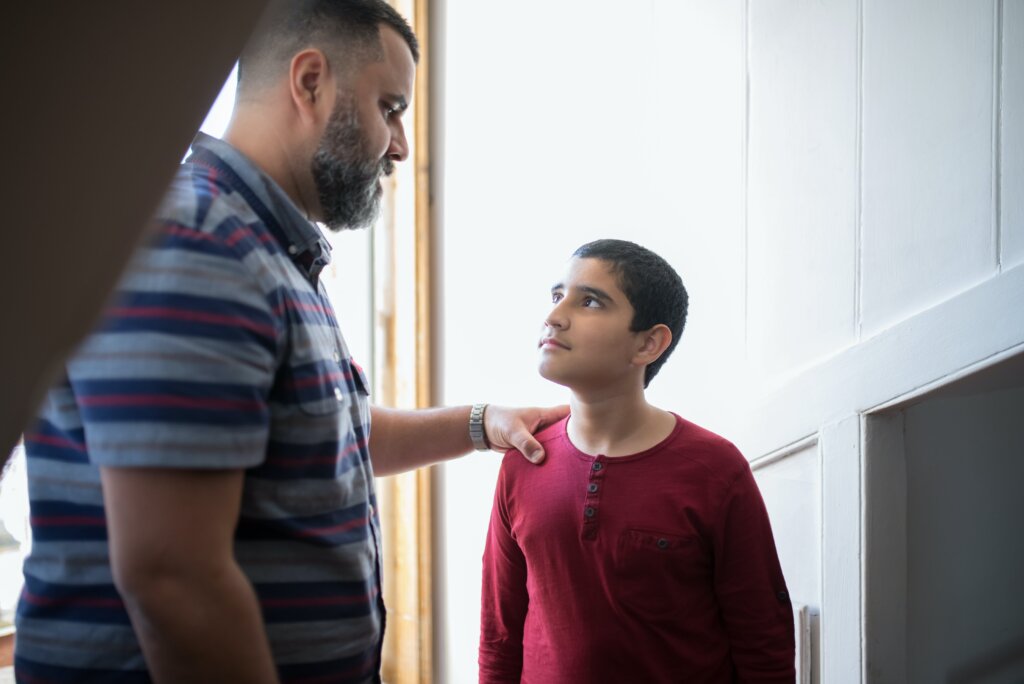Compassionate fathers and role models
Fathers or other close male role models can play an instrumental part in helping to raise boys that are compassionate to themselves and others, in-tune with their emotions, and have healthy mental well-being. Here’s how.
Touch
Soothing contact is known to reduce stress and boost immunity as well as helping create a feeling of safety and comfort. But there is a trend for fathers being less comfortable providing physical touch – in the form of hugs and reassurance – than mothers. This means that boys are both less likely to get the benefits of touch from their fathers and will not have that form of emotional communication consistently modelled to them by a male role model. Fathers should seek opportunities for nurturing touch to help their children cultivate compassion and healing.

Listening
Growing up is hard. It provokes all-sorts of questions about our identity and presents numerous challenges – always ones that previous generations will not have faced. The best way a parent can help their child through this is by listening and asking open questions. This means foregoing the urge to push children into a particular identity or form of behaviour. They will emerge emotionally stronger if they have been given the space to safely explore difficult questions.

Challenge gender stereotypes
Children will naturally get a great deal of their initial understanding about the “roles” people perform from their parents. So as well as thinking about the direct role fathers play in raising their children, it’s also important to consider the more indirect influence that comes purely through example-setting. Whether it is the household chores or attitudes to women and non-binary people, fathers can help their children to be compassionate to themselves and others by constantly seeking to educate themselves about gender issues and how to be an ally. By helping boys to avoid strict masculine stereotypes this example will also likely lead them having better health outcomes.

Supporting your spouse
Fathers can also benefit their children by being an ally to their spouse. Involved fathers – or male role-models – bring a host of benefits to their spouse including providing respite, helping to share emotionally difficult conversations, and reinforcing agreed boundaries. This in turn leads to better health for spouses.

